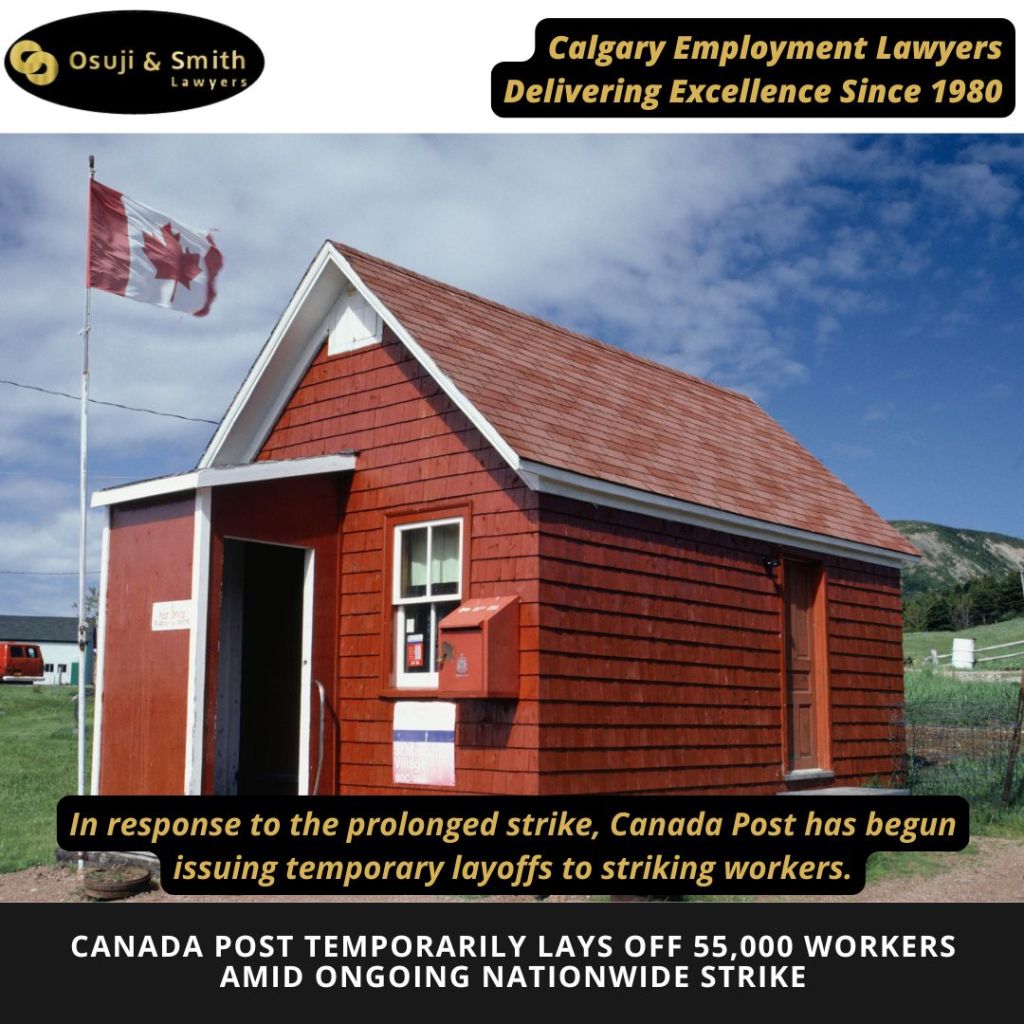
Canada Post Temporarily Lays Off 55,000 Workers Amid Ongoing Nationwide Strike
The ongoing labor dispute between Canada Post and the Canadian Union of Postal Workers (CUPW) has escalated, with the Crown corporation implementing temporary layoffs of striking employees. This development has intensified tensions as the strike, involving over 55,000 workers, approaches its two-week mark.
Background of the Strike
Negotiations for a new contract commenced in November 2023 but have been fraught with challenges. Key issues include wage increases aligned with inflation, enhanced job security, improved working conditions, and expanded benefits such as coverage for fertility treatments and gender-affirming care. Despite the appointment of federal mediators in October 2024, the parties have struggled to reach a consensus, leading to the initiation of a nationwide strike on November 15, 2024.
Temporary Layoffs Amidst the Strike
In response to the prolonged strike, Canada Post has begun issuing temporary layoffs to striking workers. The corporation asserts that these measures are necessary to adjust operations during the work stoppage, as permitted under the Canada Labour Code. Canada Post spokesperson Phil Rogers stated, “Unfortunately, due to CUPW’s ongoing national labour disruption and the significant impact on the company, we have made adjustments to our operations, as allowed under the Canada Labour Code.”

However, CUPW has criticized these layoffs, describing them as a “scare tactic” intended to intimidate union members. The union argues that such actions may violate the Canada Labour Code and has filed an unfair labour practice complaint with the Canada Industrial Relations Board.
Impact on Services and the Public
The strike and subsequent layoffs have significantly disrupted mail and parcel services nationwide. Canada Post has reported millions of undelivered parcels, a situation exacerbated by the timing of the strike during the busy holiday shopping season. The corporation has warned that the backlog could extend well beyond the conclusion of the strike, affecting deliveries during peak periods such as Black Friday and the upcoming Christmas season.
The service disruptions have also raised concerns among businesses, charities, and remote communities that rely heavily on postal services. Small businesses, in particular, face challenges in fulfilling orders, potentially leading to financial losses. Additionally, the delay in mail services has prompted government agencies, such as Service Canada, to hold back the distribution of essential documents like passports to prevent them from being held in processing centers.
Government Involvement and Future Outlook
The federal government has expressed concern over the ongoing dispute. Labour Minister Steven MacKinnon appointed a special mediator to assist in negotiations, emphasizing the necessity for both parties to reach an agreement. He stated, “Parties must reach a deal, and Canadians are counting on them.”
Historically, the Canadian government has intervened in postal strikes through back-to-work legislation, as seen in the 2011 and 2018 Canada Post strikes. However, such measures have faced legal challenges. In 2016, the use of back-to-work legislation during the 2011 lockout was deemed unconstitutional by the Superior Court of Ontario, citing violations of the right to strike.
As the strike continues, the potential for government intervention remains uncertain. The prolonged dispute poses risks not only to Canada Post’s financial stability but also to the broader Canadian economy, especially during a critical retail period. Both Canada Post and CUPW face mounting pressure to resolve their differences and restore normal operations to mitigate further disruptions and economic impact.

